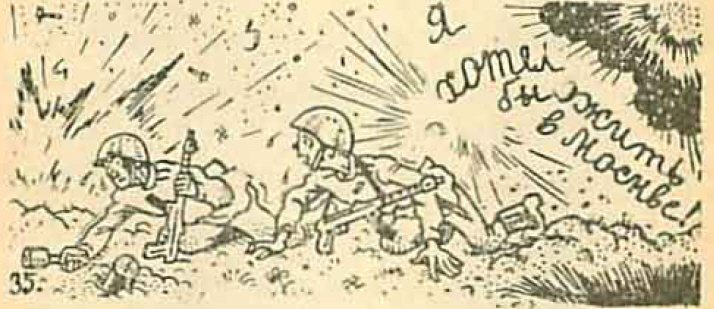
|
Languages
|
| Russian for English speakers 35 |
 |
| Lesson 35 |
|
122 |
Russian |
English Английский |
|
Тридцать пятый (35-й) урок |
Thirty fifth lesson |
|
|
УРОК НОМЕР ТРИДЦАТЬ ПЯТЬ (№35) |
Lesson number thirty five (#35) |
| REVISION AND NOTES |
|
1 Declensions. -- Have you read again and again parag. 1 of less. 28? If
so, you can now take up the declension tables that you will find in the
grammatical appendix, p. 389. But don't try to learn these tables by
heart; peruse them attentively and refer to them occasionally, when you
need some additional explanation. You cannot assimilate them in a few days; that will be the affair of our "Second wave", which will start from lesson 57. Above all, do not worry; we are walking in the grass and the path can hardly be seen ; but by treading on it over and over again, it will come out by itself. |
|
2 Negative sentences generally require the genitive or "partitive"; it
is the same for verbs expressing a desire or need. Thus, we shall have :
я люблю вино, I like wine, but : я хочу вина, I want some [= a certain quantity of] wine. — Я не люблю вина : I do not like wine. |
|
3 When motion, or rather change of place is implied after the
prepositions в, на, за, the accusative is used :
Я еду в город: I go to the town. Я живу в городе: I live in town. Пойдём на завод: let us go to the factory. Мы работаем на заводе: we work at the factory. |
|
4 Из and От both mean
from, coming from, and are followed by the genitive; but there are
shades of meaning, just as between aus and von in German. I have received a letter from Paris: я получил письмо из Парижа. I have received a letter from him : я получил письмо от него. От means from somebody, and из from somewhere. |
|
5 The feminine of nouns can be formed in ка, ца, ша
etc... Thus: гражданин, the citizen; гражданка, the "citizeness" ; учитель, the master, teacher; учительница, the mistress; секретарь, the secretary (masс.), секретарша, the secretary (fem.). As a matter of fact, we find the same diversity as in English. |
|
6 Бы is the invariable mark of the conditional. Я хотел жить в Москве: I wanted to line in Moscow. Я хотел бы жить в Москве: I should like [want] to live in Moscow. Вы хотели бы, они хотели бы, you would like, they would like. But, with the characteristic suppleness of Russian, it may shift its place : Я хотел бы or я бы хотел, I should like. |
|
7 Reflective verbs are characterized by the final ся
in the infinitive. In the present this ending changes into сь in the first person singular and second person plural : бояться: to fear (litter. "fear oneself"); я боюсь, он боится, вы боитесь, мы боимся, они боятся. In the preterit : я боялся, он боялся, вы боялись, мы боялись, они боялись. — In the feminine : я боялась, она боялась. — In the neuter : оно боялось. |
|
8 Genitive in у. |
|
9 Знать, to know : |
|
The preposition с (or
со) means either with (+ instrum.) or, on the
contrary, off (+ genitive). |
|
|